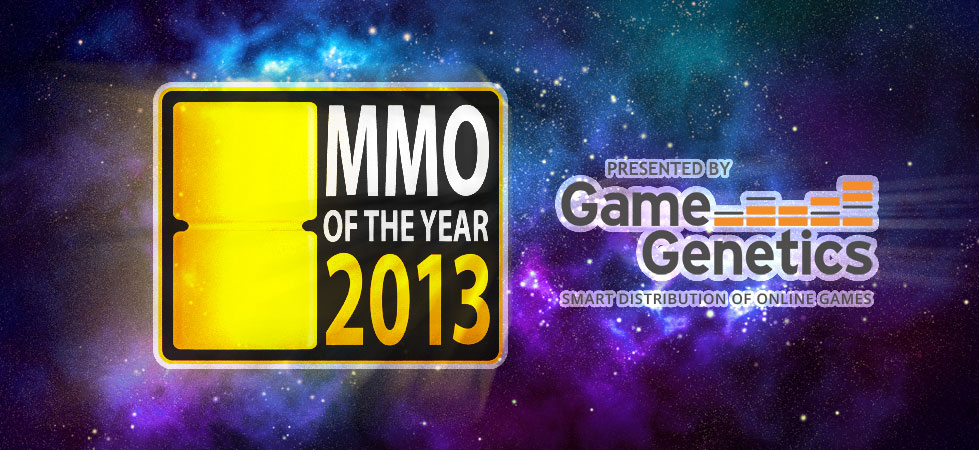MMORPGs: In need of a (r)evolution
05/16/2013
Experiencing adventures in a fantasy world - together with your friends - that’s what’s unique to MMORPGs like World of Warcraft, Ultima Online or Star Wars: The Old Republic. But development of the genre stands still, player numbers are shrinking.
What MMORPGs need right now are new ideas that respond to the changes in the market
MMORPGs came up in the mid 1990s and picked up momentum quickly. Most of the titles back then were pretty unsophisticated in terms of game design. Players were to supposed fight and gain experience. Rinse and repeat. Nevertheless it required to team up with others. So people met with friends or strangers to head out into the dungeons and defeat furious monsters or to fight each other in duels. This was a pretty unique experience at that time. So people loved playing them although real quests or even a background story were missing.
Released in 1997 Ultima Online was a MMORPG that allowed players not only to be a warrior. Instead they could be a craftsman, e.g. a blacksmith, a baker or a farmer. People were pursuing their businesses with each individual contributing to the game economy. A farmer was harvesting corn that he brought to the miller to produce flour. The baker then made bread or other treats from it which he finally sold to his customers. Of course it was still possible to explore the game world as a wizard or a warrior and to fight monsters.
Finally the genre turned into a direction that emphasized quests and narration with the release of Blizzard’s World of Warcraft in 2004. For 9 year now the game is heavily relying on quests to guide players through the game world. It’s still possible to do crafting but it has been simplified a lot. The game’s focus is to lead groups of players into missions and raids. The MMORPG got extremely popular, in particular because of the simple gameplay. And the player base was kept in line with a flow of updates and expansions.
World of Warcraft was the first MMORPG suitable to the mass and as such was an inspiration to many who followed. Most of these games were lacking success though. A plain copy of the World of Warcraft success formula is apparently not enough. So developers were trying to set themself apart in order to appeal to various niches - be it deep and personal narration as in Bioware’s Star Wars: The Old Republic or extraordinary settings such in Funcom’s The Secret World. Still they were struggling.
Free2play seemed as a lifeline. While games used to rely on monthly subscriptions to generate revenues the Free2play model allows people to get into the game for free, thus greatly easing the pain of acquiring new players. Instead revenues are generated from ingame shops selling individual equipment and sometimes even granting advantages in the game. The promise of a “free” MMORPG is still attracting many players. But once they get the feel that a game lacks content or that others are buying unfair advantages due to unbalanced ingame shops there’s nothing to keep them from leaving. Great player fluctuation is the result, rise and fall can be a matter of months.
Making things worse is that more and more players no longer want to spend the huge amounts of time needed to seriously play a MMORPG. Players are growing to get get a full-time job and start a family. They simply can’t meet up at specific times to do hour-long raids or keep their hero in shape in order to “function” as a member of the guild. And even if they can, they stick to the games they know and that all their friends are playing rather than to begin a new game and build everything up from the start. Young players don’t even find their way into the genre due to the rise of mobile games. Being used to quick, rewarding game experiences they find it hard to get into time-consuming MMORPGs.
What we need right now are new ideas that respond to the changes in the market and the changing preferences of players. Given the recent Kickstarter success of Wasteland 2, Project Eternity or Torment: Tides of Numenera, traditional single player RPGs are leading the way. Zenimax jumped the wagon already with The Elder Scrolls Online, that is going to offer quests and quest lines similar to those in single players RPGs. Story included. But it remains open if this will appeal to players seeking to play on their own. Why shouldn't they go for an offline-only alternative?
Richard Garriott, creator of the Ultima Online series, has found an creative new approach. He crowdfunded his latest project called Shroud of the Avatar: Forsaken Virtues on Kickstarter, exceeding his goal of USD 1,000,000 by almost another USD 1,000,000. The game allows the player to choose between two modes. Either you play offline following a story like in a traditional single player RPG or you go online and play with others MMORPG-style. Quests are going to cover everything from tiny 5 min tasks up to hour-long missions.
It might well be that Richard Garriott is having the finger on the pulse of the current gamer generation - like he did back in the day with Ultima Online. Players will be getting game experiences of exactly the length they want to. People preferring to play on their own will be able to do so just as those preferring to invest lots of time in online multiplayer sessions. Richard Garriott is offering something that is missing in most games: Free choice. Shroud of the Avatar has the potential to appeal to a great range of players, it only needs to live up to the expectations it has been raising in it’s announcement.
Maybe this is the kind of (r)evolution the genre needs. An innovative new idea that helps MMORPGs maintain their high standards.

